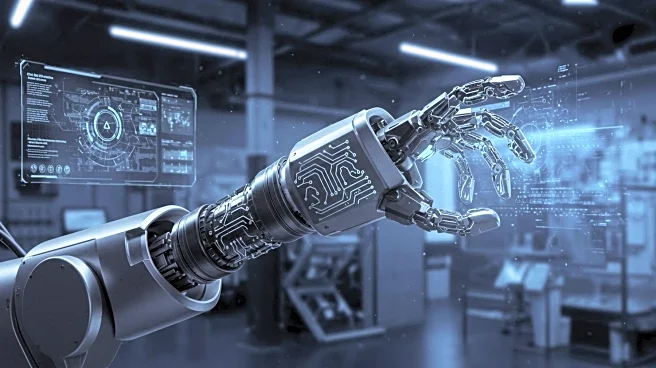What's Happening?
Recent research highlights cybersecurity as a major concern for the food and beverage industry, with 36.5% of respondents identifying it as their top business challenge. Companies like Dole, Sysco, and Mondelez have faced cyber incidents that disrupted production lines and caused significant delays. These disruptions have strained resources and led to costly repercussions, such as the ransomware attack on Dole affecting grocery store shipments. In response, 20.6% of food and beverage companies plan to enhance cybersecurity measures over the next two to three years. The reliance on interconnected systems and digital tools increases vulnerability to cyberattacks, prompting companies to invest in secure technologies like cloud computing. Single-tenant cloud architectures offer greater management control and isolation, reducing the risk of data breaches. This approach is crucial for manufacturers managing distributed operations and complex supply chains, as it allows for consistent security policies and efficient threat response.
Why It's Important?
The emphasis on cybersecurity in the manufacturing sector is critical due to the increasing reliance on digital tools and interconnected systems. Cyberattacks can lead to significant operational disruptions, affecting supply chains and causing financial losses. By prioritizing cybersecurity, companies can protect their data and maintain operational continuity. The adoption of secure cloud computing solutions is particularly important for manufacturers, as it enables centralized data management and consistent security protocols. This focus on cybersecurity not only safeguards company assets but also ensures the reliability of supply chains, which is vital for maintaining consumer trust and market stability. As industries continue to digitize, robust cybersecurity measures will be essential to prevent data breaches and protect sensitive information.
What's Next?
Manufacturers are expected to continue investing in cybersecurity technologies and strategies to mitigate risks associated with digital transformation. This includes adopting single-tenant cloud architectures and enhancing security protocols for SaaS applications. As companies prioritize cybersecurity, they may also explore partnerships with cybersecurity firms to bolster their defenses. Additionally, regulatory bodies may introduce new guidelines to ensure industry-wide compliance with cybersecurity standards. The ongoing focus on cybersecurity will likely lead to innovations in secure technology solutions, further strengthening the resilience of supply chains against cyber threats.
Beyond the Headlines
The shift towards enhanced cybersecurity in manufacturing reflects broader trends in digital transformation and risk management. As industries become more interconnected, the need for robust security measures becomes increasingly important. This development also highlights the growing role of technology in shaping business strategies and operational practices. By investing in cybersecurity, companies are not only protecting their assets but also positioning themselves for future growth in a digital economy. The emphasis on secure cloud computing solutions underscores the importance of data management and protection in modern manufacturing processes.









